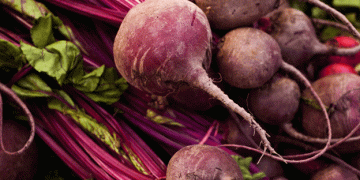The past few years have brought unprecedented challenges for organic farmers across Europe. With 2023 marked by persistent rainfall and inflation-driven market contraction, many growers—especially those in vegetable production—struggled to adapt. For Engelhardt Farm, located in Untermünkheim in the Schwäbisch Hall region of Germany, adaptation meant turning adversity into innovation.
“We actually found the wet years harder than the 2018 drought,” explains Jonas Engelhardt, co-owner and manager of the Bioland-certified farm. “We have solid irrigation infrastructure, but our heavy soils become impassable during constant rain.” This challenge is familiar to many farmers working with clay-rich soils in temperate regions, where prolonged wetness disrupts planting schedules and damages root crops.
Despite this, the Engelhardt family—Jonas, Hartmut, and Hannes—has continued to expand and innovate. Mechanization is a growing part of their success. Hoeing machines, for example, have become essential for weed control without herbicides, saving labor and maintaining soil health.
Balancing Supply and Demand in a Saturated Market
2023 saw a paradoxical glut of root vegetables. Many farms that typically struggle with drought saw bumper crops thanks to the rain, pushing down prices—particularly for parsnips and celery. “Pricing was tricky this year,” Jonas notes. “There was simply too much product from growers who had no water constraints.”
However, not all crops were affected equally. Root parsley, which is more finicky and less forgiving in wet soil, yielded less and held higher prices—a small consolation in a year of financial uncertainty.
Compounding the challenge was a dip in demand for organic products. Inflation-hit consumers turned toward cheaper alternatives, especially in the natural food retail sector, the Engelhardts’ primary sales channel. According to data from BÖLW (German Federation of Organic Food Producers), the organic market in Germany shrank by nearly 3% in 2023—the first contraction in over a decade.
Finding New Paths: Processing and Subscription Boxes
To counter this trend, Engelhardt Farm has doubled down on diversified sales. Subscription vegetable boxes—delivered directly to consumers for over 30 years—remain a reliable revenue stream. Now prepared in a new state-of-the-art facility, these boxes offer everything from carrots and leeks to greenhouse-grown cucumbers and tomatoes.
A new partnership with Pentz, a regional processor in Essingen, has opened doors into the organic ready-cut segment. “This cooperation allows us to use produce that’s too large or cosmetically imperfect for retail,” says Jonas. This is a growing trend across Europe, where reducing food waste is a priority and convenience is king. According to FiBL (Research Institute of Organic Agriculture), demand for organic convenience products—including washed, cut, and packaged vegetables—is rising steadily across urban markets.
In 2024, the farm plans to deepen this relationship with Pentz by delivering leafy crops like endive and lettuce varieties priced by weight rather than unit—an approach that simplifies logistics and improves cost efficiency for both parties.
Scaling Sustainably in an Isolated Organic Landscape
Growth hasn’t come easy. As one of the few organic farms in the area, Engelhardt Farm lacks the benefit of land swaps for organic rotation. This forces the business to wait through a two-year conversion period when expanding new fields, limiting their flexibility.
Nonetheless, the Engelhardts have managed to expand both greenhouse and open-field production in the last two years. Their 40-crop portfolio not only mitigates market risk but also provides a competitive edge: “We’re practically the only ones offering many of these products regionally,” Jonas points out. “That exclusivity strengthens our position.”
Engelhardt Farm is more than a success story—it’s a blueprint for the future of mid-sized organic agriculture. By combining crop diversity, direct-to-consumer marketing, value-added processing, and sustainable expansion, the Engelhardts are proving that organic farms can thrive—even under pressure. As climate instability and economic fluctuations become the new normal, it’s this kind of resilient, adaptable model that will help maintain agricultural and cultural diversity for generations to come.































